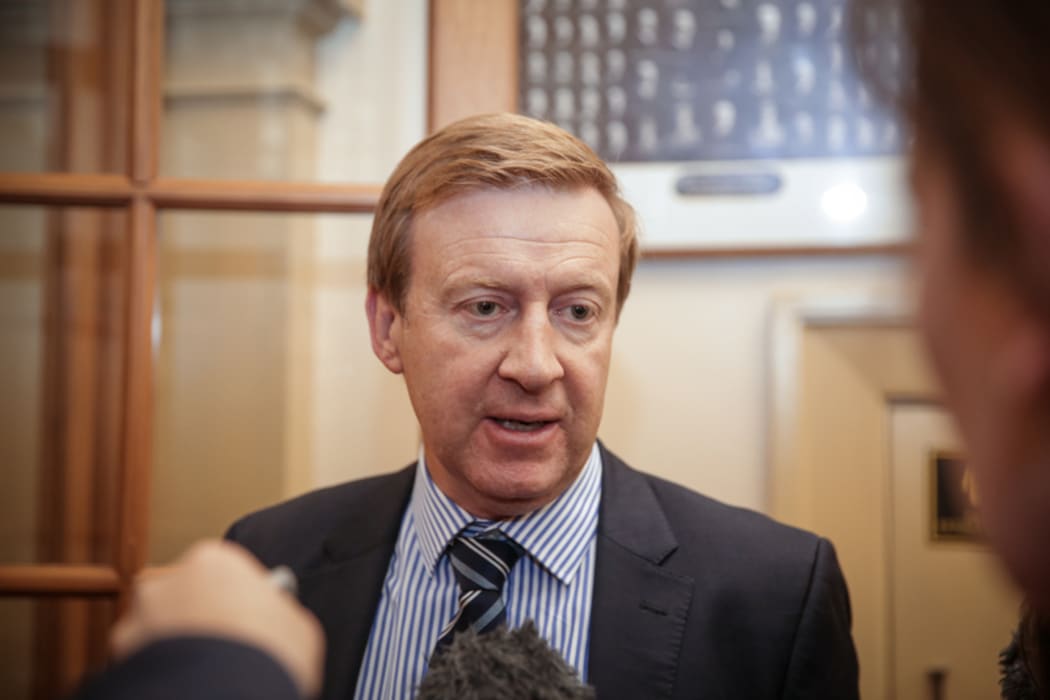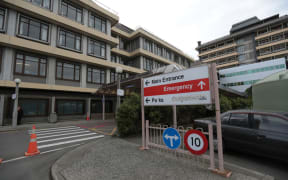Health Minister Jonathan Coleman has been forced to defend the standard of mental health services, as Labour, the Greens and the senior doctors' union question funding levels.

Health Minister Jonathan Coleman Photo: RNZ / Rebekah Parsons-King
Dr Coleman arrived at the health select committee today for the typically wide-ranging post-Budget grilling by MPs on Vote Health, armed with papers outlining spending in the coming financial year.
He was particularly prepared for questions about mental health, a contentious topic further fuelled last week by a critical report from the Auditor-General about high pressures on hospital inpatient units and deficiencies involving discharge.
Dr Coleman told MPs mental health was indeed a "hot topic", both in this country and in other comparable countries. He said the recent Budget provided a $224 million boost to mental health spending, half of it in a fund tagged for innovative ideas under a social investment approach.
He said mental health has always been an issue, but this had increased, especially the past two years. Models of care needed to change, he said, to help deal with a rise in demand from 96,000 people accessing specialist services eight years ago to 168,000 now.
Dr Coleman said the reasons for the rise were "multi-faceted", but funding had risen by $300m under National to help meet demand. Other changes had followed.
"There's 150 more psychiatrists and 600 more mental health nurses in the system compared to nine years ago," he said.
He added, "Waiting times are coming down but there's still more we need to do. But people who need to be seen urgently are being seen urgently, and that's the feedback we get right across the system."
But Labour health spokesperson David Clark said many senior people told him the system was at "breaking point", managing a 60 percent increase in demand with a 28 percent rise in funding. He said studying the Budget, he could not see any mental health package in it.
"I'm wondering, in light of this growing crisis, why you as minister did not have any new mental health money appropriated in response to what the public thinks is a growing crisis," Dr Clark asked.
Dr Coleman said that the money was there in the social investment pool, adding that over a year new initiatives come up and money was needed.
"It makes sense to have this tagged contingency in there, which can be accessed in support of the mental health strategy which is going to Cabinet shortly."
He conceded there was a growing pressure but added, "there is no point in just rushing through a package of initiatives just to meet the Budget".
He said a new approach was needed, with a greater focus on early intervention, resilience and prevention.
The minister rejected a claim that 45 percent of those under 11 were not being seen within the recommended three-week waiting time.
Dr Clark asked Dr Coleman to change his mind and agree to an independent review of mental health, in light of widespread concern about mental health.
"I'm wondering if you, minister, would have any objection to having a review, or are you afraid of what might be found?"
Dr Coleman said he was not afraid. "I just do not think it would be the best use of your time, because we have got a very clear approach and plan."
Green Party health spokesperson Julie Anne Genter was not convinced the spending on mental health in the Budget would address worries.
"Given that there's been a significant increase in demand, isn't it reasonable to suggest that we would need a significant increase in funding to make sure that the people who need the help are able to get it?"
Unions also challenge funding claims
Unions have also accused the government of exaggerating claims of increased mental health spending in the Budget.
The Council of Trade Unions and the senior doctors' union said their own analysis showed spending was falling far short of what was needed - and the $224m boost was largely illusory.
Next year alone, publicly funded mental health services would get just $18m more, they said.
That would be a 1.2 percent rise, when an increase of 7.3 percent was needed to meet rising demands and costs, they said.






